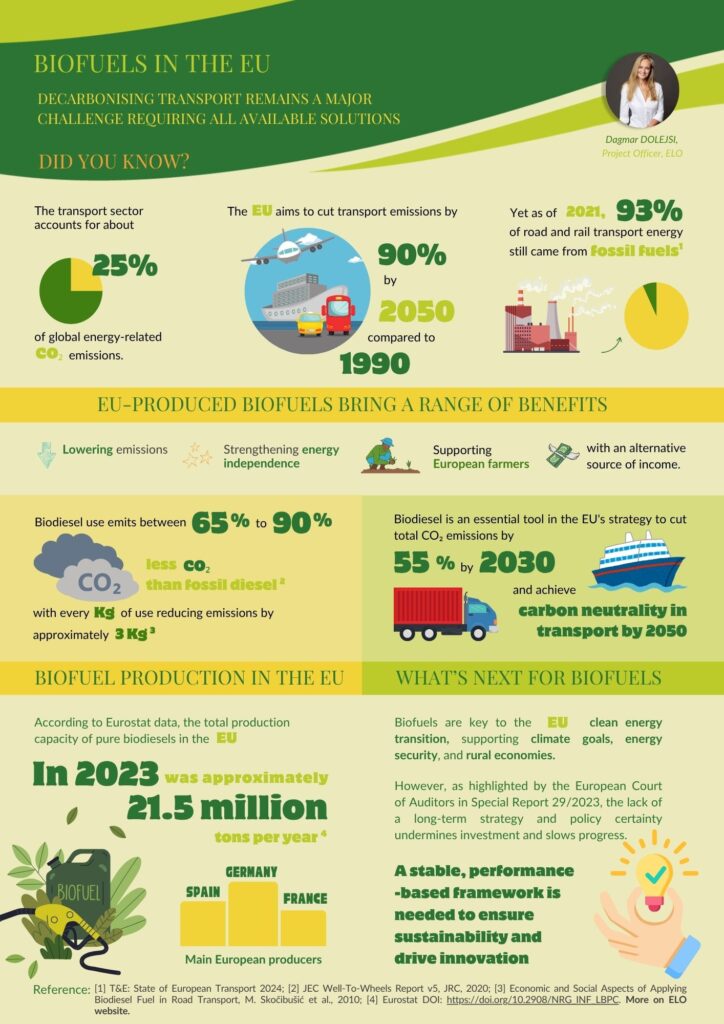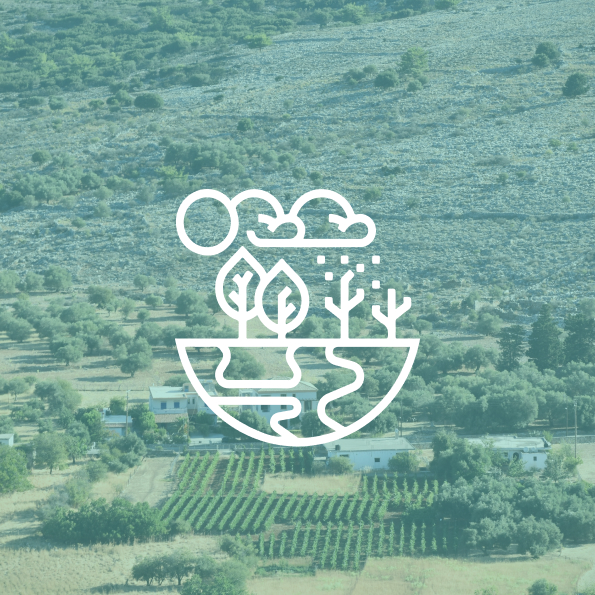Biofuels in the EU: A Key to Decarbonising Transport and Enhancing Energy Security
Author: Dagmar Dolejsi, Project Officer, ELO
The transport sector accounts for about 25% of global energy-related CO₂ emissions. To address this, the EU aims to cut transport emissions by 90% by 2050 compared to 1990. Yet, as of 2021, 93% of road and rail transport energy still came from fossil fuels[1]. Decarbonising transport remains a major challenge requiring all available solutions.
Why Biofuels?
EU-produced biofuels bring a range of benefits – lowering emissions, strengthening energy independence, and supporting European farmers with an alternative source of income. By-products from biofuel production, particularly from crops such as rapeseed and cereals, contribute significantly to the supply of protein feed in the EU[2]. Biodiesel use emits between 65 and 90% less CO2 than fossil diesel[3], with every kilogram of biodiesel use reducing CO2 emissions by approximately 3 kg[4]. This makes biodiesel an essential tool in the EU’s strategy to cut total CO₂ emissions by 55% by 2030 and achieve carbon neutrality in transport by 2050.
Biofuel Production in the EU
The European Union remains one of the key players in global biofuel production. According to Eurostat data, the total production capacity of pure biodiesels in the EU in 2023 was approximately 21.5 million tons per year[5]. The largest capacities were recorded in Germany, Spain and France.
The EU has also implemented strict sustainability criteria for biofuels, restricting the use of food-based feedstocks and encouraging the development of advanced biofuels made from waste and residue materials. These measures aim to maximise climate benefits while avoiding negative impacts on land use and biodiversity.
Open Questions and Sustainability Trade-offs
Despite their potential, biofuels raise concerns that future EU strategies must address. A major issue is land competition: growing demand for biofuel crops can conflict with food production or cause indirect land-use changes that reduce climate benefits. Moreover, some biofuels have a relatively low energy return on investment (EROI) compared to other renewables, which may impact their long-term sustainability. EU policy should carefully balance these trade-offs and prioritise solutions like advanced biofuels that minimise environmental and social risks.
What’s Next for Biofuels?
Biofuels are key to the EU’s clean energy transition, supporting climate goals, energy security, and rural economies. However, as highlighted by the European Court of Auditors in Special Report 29/2023, the lack of a long-term strategy and policy certainty undermines investment and slows progress. A stable, performance-based framework is needed to ensure sustainability and drive innovation.
[1] T&E: State of European Transport 2024
[2] EPRS: Briefing on EU feed autonomy: Closing the gaps in European food security, 2023
[3] JEC Well-To-Wheels Report v5, JRC, 2020
[4] Economic and Social Aspects of Applying Biodiesel Fuel in Road Transport, M. Skočibušić et al., 2010
[5] Eurostat DOI: https://doi.org/10.2908/NRG_INF_LBPC


